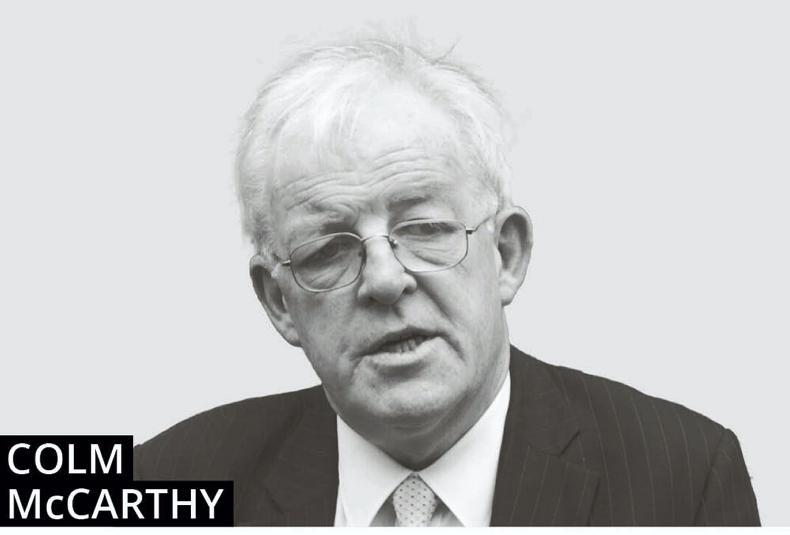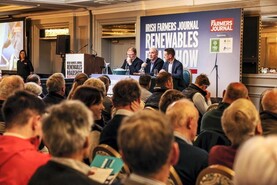Road transport and home heating are two of the sectors in which carbon savings must be made if climate targets are to be met.
Rural dwellers use fossil fuels more intensively for both purposes. Non-urban motorists do higher mileage and have been less willing to adopt electric cars, partly because of concerns about the slow roll-out of charging infrastructure.
Public transport alternatives are generally poor in areas with low population and it is not realistic to expect high service frequencies that can compete with the car.
Not surprisingly, car ownership rates are higher in rural Ireland. Some of the older Dublin suburbs have the highest incomes alongside the lowest car ownership rates in the country.
Availability
There is almost no availability of piped gas for central heating outside the main cities and a few of the bigger towns.
As a result, rural households are big consumers of home heating oil and many still rely on solid fuel. Aside from carbon emissions, there are public health issues around solid fuel usage and it has largely been phased out in urban areas.
It is virtually impossible to make policy changes that affect everyone equally
The surge in energy costs and the Government policy reaction feeds the perception that there has been something of a bias against the countryside, with no shortage of rural defenders crying foul.
It is virtually impossible to make policy changes that affect everyone equally, especially when changes are being made in a hurry and there is plentiful scope for an impression of unfairness to be created where none was intended.
A good example was the cut in excise duty on road diesel. The cut for green diesel was much smaller, but there is a simple explanation: there was a far lower excise rate on green diesel to begin with, for good reasons.
Diesel used in tractors on farms is not held responsible for wear and tear on the road system, but you cannot cut a charge which is not being levied.
Turf wars
The current row about turf-cutting has been given more airtime than it deserves. Many poorer households in rural Ireland cut turf, but many in Dublin and the other cities burned coal before it was banned.
It is simply not economic to offer rural households pipeline gas, which has lower emissions than turf or coal, and the only plausible response is to review the fuel allowance for all those eligible, which the Government has been doing.
Broader picture
The broader picture cannot be ignored. There is a serious risk that the Irish Government will find itself short of revenue in the years immediately ahead.
Interest rates are heading north and the era of cheap borrowing for Eurozone governments could soon be over.
The last few years have seen unexpected buoyancy in Government revenue due mainly to a bonanza in corporation tax receipts.
The Department of Finance and the Fiscal Advisory Council have warned repeatedly that this buoyancy is under threat from ongoing reforms to the international corporate tax environment.
The US government, on its own, could make unilateral changes which would make billions of Irish Government tax revenue evaporate overnight.
Expensive energy
In a world of expensive energy and uncertain supplies, the financial capacity of the State is a component of an energy security policy.
If you have the money, you can almost always secure supplies of crude oil or refined products in a crunch.
Since Ireland has high legacy debt on the State balance sheet, getting the State budget into balance is, at one remove, an energy security issue.
A willingness to control public expenditure properly would help, as would an end to promises of tax reductions and blanket opposition to fair user charging for State services.
Superior services
It is notable that so many political voices in rural Ireland complain about superior services in the cities as if their replication in the countryside could readily be achieved.
Pipeline gas to replace truck deliveries of heating oil would cost the earth. Frequent bus services would have so few passengers as to embarrass even the most myopic.
Building railway lines was a bright idea some time around 1850. But there are some perfectly legitimate rural grievances.
Why should urban dwellers get ‘free’ water, for example, when farmers must sink their own wells and contribute to the cost of group water schemes?
Why is so little motoring revenue collected through congestion charges, which would be levied mainly in and around cities? The revenue from auto-fuel taxes will decline anyway as the car fleet is electrified. What is to replace it?
Rather than the constant demand for extra public spending in rural Ireland, why not accept that better control on public spending is overdue. And there will need to be extra Government revenue too, given the pressures from population ageing. Charging for urban water, and for urban road congestion, makes a lot more sense.






 This is a subscriber-only article
This is a subscriber-only article










SHARING OPTIONS: